Lepidus, the tarnished triumvir
| série: | Histoire (Rome) |
| éditeur: | Routledge |
| auteur: | Weigel Richard |
| classement: | biblio2 |
| année: | 1992 |
| format: | cartonné, avec jaquette |
| état: | TBE/N |
| valeur: | 8 € |
| critère: | ** |
| remarques: | English book prologue the negative image of Lepidus the triumvir that the author Weigel would try to minimize 1/ the Aemilii Lepidi - the distinction attached to the Aemilian gens was one of the oldest and finest in Rome - their names were given to monuments such as the basilica Aemilia, but also to the road via Aemilia and to the region called Emilia - when Lepidus the future triumvir was born, Republican traditions were being challenged and discarded and the basic fabric of the constitution was being torn in the process 2/ like father, like son? Marcus Aemilius Lepidus consul 78 BC was the father of Lucius Aemilius Lepidus (see information) and of Marcus Aemilius Lepidus, future triumvir n.b. prosopography is an investigation of the common characteristics of a group of people, whose individual biographies may be largely untraceable - the first triumvirate Caesar, Pompey and Crassus lasted 60 to 50 BC, during which the gang activities of Milo and Clodius took place - in about 60 BC Marcus Lepidus became pontifex maximus, he was then a close friend of Julius Caesar >> p. 22 the office of moneyer (triumvir monetalis) gave its occupants substantial freedom to commemorate an individual family's accomplishments and thus provided a very effective form of free advertising for their own future political careers >> p. 23 the aedileship was an office where ambitious politicians would spend a great deal of money on constructing buildings and presenting public games, all with an eye towards currying (preparing) support for future campaigns - Lucius Aemilius Lepidus was a close friend of Cicero and he was elected consul 50 BC - 49 BC Caesar was fighting in Spain against Pompey's legates >> p. 26 the selection of Lepidus to be in charge of the city of Rome as the praetor urbanus is a statement of Caesar's confidence in the man >> p. 27 and before departing to Greece, Caesar had arranged for Lepidus to become 49 BC proconsul in Hither Spain as part of Caesar's effort to place governors loyal to him in the provinces - for his good services, Lepidus was rewarded with the offices of consul and magister equitum (46 BC), Lepidus had now reached the pinnacle of a Roman noble's political career and could be quite proud that he had replicated the achievements of his famous model ancestor to a great degree 5/ friend of Caesar - Caesar's decision to entrust Lepidus with high responsability shows Lepidus' ability to govern in the name of Caesar whereas Caesar did not completely trust Mark Antony, Lepidus was devoted to Caesar and served him loyally >> p. 33 the Lex Julia municipalis which set down rules for municipal administration >> p. 35 the Diribitorium was the place where the votes were counted - during the future campaign agains the Parthian, Lepidus was given the administration of Hither Spain and the Narbonese Gaul giving thus a control about these difficult provinces - at that time, Caesar was also interested in grooming Octavius properly and introducing him as his heir giving him Caesar's name n.b. Apollonia was an Ancient Greek trade colony which developed into an independent polis, and later a Roman city in southern Illyria (now Albania) >> p. 39 the Lupercalia incident when Antony offered a crown to Caesar to make him king (rex), this action annoyed very much Cicero and was perhaps the direct cause for the murder of Caesar >> p. 42 the assassination of Caesar, intended to restore the stability of Republican government, resulted instead in reopening a power struggle that would end a bloody civil war - at the time of the assassination, Lepidus was working outside the city whereas Antony was distracted by his fellow senators >> p. 43 to this point in Lepidus' career, there is no evidence of the vanity, fickleness (changeability) or incompetence that have dominated later descriptions of Lepidus, his personal weakness and failures as well as their distortion through history, all lay in the future 6/ Pontifex maximus and hostis publicus >> p. 44 both Dio Cassius and Appian credit Lepidus with decisive action after the assassination of Caesar, Lepidus succeeded in stabilizing a chaotic situation and in determining its ultimate outcome whereas the conspirators took refuge in the Capitol waiting for Dolabella to be confirmed by the senate as Caesar's successor - it is clear that Brutus's insistence on limiting the plot to one victim was shortsighted although noble, time in any case was on the side of the Caesarians >> p. 47 Cicero was apparently the dominant force in persuading the senate to grant amnesty to the assassins, Caesar's actions and legal acts were also to stay in force - after the flight of Brutus and Cassius to Asia, Antony made alliance with Lepidus by arranging a marriage between his daughter and Lepidus' son, but it did not take place - in April 44, Lepidus departed Rome to assume control of his provinces Hither Spain and Narbonese Gaul as well as to deal with the danger presented by Sextus Pompey, in June a peace against money was arranged between Sextus, Antony and Lepidus - in his Philipic orations, Cicero supported Lepidus by giving him the title of Imperator but afterwards he accused Antony of treachery making him public enemy when Antony challenged consul Decimus Brutus in Mutina - Cicero then also had given his support to Octavius, now named young Caesar - during that time, Lepidus was in a strong position sealing off in Spain Pollio's and in Gaul Plancus' legions - there was then the second battle of Mutina with the victory against Antony of the consuls Hirtius and Pansa who both died in the battle leaving all the honour of glory to young Caesar - finally Lepidus made alliance with Antony and arranged a conference of peace between Antony and Octavius nota bene: Argenteus is a river of Gallia Narbonensis, mentioned by Aemilius Lepidus in a letter to Cicero, 43 BC with the pons Argenteus near Le Canet (forum voconii) only 24 miles from Antony's camp at forum iulii (Fréjus) >> p. 59 the union of Lepidus and Mark Antony was therefore the natural outcome of the two men's earlier careers despite the fact that Antony was declared by the senate hostis publicus (public enemy) >> p. 62 the main force of Mark Antony was his cavalry because their relative inactivity at Mutina hat left them almost intact whereas cavalry was Lepidus' main weakness >> p. 62 the bitter invective that flowed from Cicero's pen in this period has totally engulfed Lepidus' reputation and branded him permanently before the bench of history >> p. 62 Cicero divided the world into the boni and the improbi - the boni share a fortitude of character to pursue the path of honor, morality and justice while also performing duties to family and state - those who choose the way of personal advantage and expediency, who lust for military commands, individual fame and power over others of who even hesitate in deciding to follow the route of virtue are improbi and for Cicero, Lepidus become a "improbi" 7/ the second triumvirate: one-third of the world >> p. 68 the three men were to receive consular power and although they carefully avoided the title of dictator, they granted themselves dictatorial powers, but in the long run, Octavius wanted to create a duovirate with Antony - while Antony and Octavius left Italy for Greece with 20 legions, Lepidus was put in charge to guard Rome and Italy with 3 legions, but before, they would carry out proscription against their Roman enemies >> p. 70 however, just as happened to the partners of the first triumvirate, human nature would eventually cause two of the participants, who were temporarily willing to accept a division of power among three, each to attempt to grab it all for himself >> p. 71 proscription of political enemies was modeled on Sulla's policy and the triumvirs considered it essential because in their eyes, Caesar's clemency had led directly to his assassination - the passage of the lex Titia gave the triumvirs a legal base that the members of the unofficial first triumvirate never had >> p. 72/73 explanation about the conscription during Roman time >> p. 79 the battle of Philippi also ironically marked the end of Lepidus' effective power within the triumvirate and over the state >> p. 81 in the summer of 40 BC, Octavius sent Lepidus to govern Africa giving him the six of Mark Antony's legions whose loyalty was most suspect, Lepidus' government in Africa lasted from 40 to 36 BC - after the negotiations with Sextus Pompeius, hostilities resumed in 38 BC and Octavius lost numerous ships and men through battles and storms - 37 BC preparations started for an invasion of Sicily which was to be developed from three directions: Octavius on the north coast, Statilius Taurus on the east coast and Lepidus on the western coast seizig the city of Lilybaeum >> p. 87 Lepidus' fleet included 1600 carrier vessels, 70 warships, twelve legions, 500 Numidian cavalry and a large amount of military equipment (according to Appian) - nota bene Statilius Taurus was a general during the second triumvirate - initially a partisan of Marcus Antonius, by whom he was chosen as suffect consul in 37 BC, he subsequently was sent by Antonius with a fleet to aid Octavian in his war against Sextus Pompeius, after Pompeius was driven from Sicily, Taurus crossed the sea to the province of Africa which he secured without any difficulty and for which he was awarded a triumph in 34 BC - after the naval victory of Naulochus by Agrippa, the fate of Lepidus was decided at the siege of Messina, he was accused by Octavius of having sought alliance with Sextus Pompeius and when he asked also for the control of Sicily, he was dismissed by Octavius, Lepidus was abandoned by his legions which deserted to Octavius being now young Caesar, probably these soldiers felt that it was more in their interest to side with Caesar, however young Caesar did not want the death Of Lepidus >>p. 92 Roman soldiers were a volatile lot, especially in the uncertainty of civil wars; even Julius Caesar had difficulty with them at times and Octavius faced mutiny among his victorious legions almost immediately after capturing Lepidus >> p. 93 with only two leaders struggling for control, and no third force seeming to side with one or the other or keeping some power for himself, Octavius and Antony woulkd soon find themselves reaching for one-man rule 8/ exile and death: on the outside looking in - Lepidus' days of power and prestige was now over and after 36 BC he was doomed to spend the final 22 years of his life in political impotence - and it was the challenge to Roman traditional customs raised by the Gracchi, Marius, Sulla, Pompey, Caesar, Crassus, Antony, Lepidus and Octavius himself that has plagued Rome with civil wars for the previous century - first Lepidus was exiled athis estate in Circeii not far away from Rome where Augustus could keep close watch on Lepidus - his son Marcus was involved in a plot against Augustus and was executed, his wife Junia was also involved but was released - anyway Augustus made often fun of Lepidus in front of the senate - Leidus dies 13 BC when Augustus could finally take the treasured position of the pontifex maximus >> p. 100 Lepidus had few tests of his military ability but in his limited combat experience, he was generally successful, however he had been a very capable administrator 9/ Nachleben: Lepidus in history and fiction - the biography of Lepidus by Roman historians was mostly influenced by the prestigious reign of Augustus and most of the authors would be more inclined to flatter Augustus than Lepidus - only few historians wrote a biography of Lepidus and they were mostly referring to Cicero's invective (insulting) to Lepidus considering him as a weathercock (homo ventosissimus) - most of this chapter p. 101 to 135 mentions various interpretations about Lepidus' biography by Roman historians such as Dio Cassis, Appian but also Florus, Tacitus Plutarch and also by modern historians >> p. 107 the Italian comic poet Cesare Caporali >> p. 109 Lepidus would receive exposure on a grand scale particularly through the piece of Shakespeare in Julius Caesar and Antony + Cleopatra, Lepidus being described in a most degrading scene >> p. 122 also reference of Lepidus in the comic history of Rome by John Bonner, Lepidus being a stupid, coarse-minded soldier who would agree to any thing >>p. 131 notes on Duggan's historical novel, this book received a very favorable review of Lepidus being painted as a man of the noblest blood who however relies much on his wife Junia for decisions >> p. 136 by Weigel: the tarnished triumvir was no saint, but neither was he a stupid oaf, however with hinsight we can say that Lepidus was clearly outclassed by his two colleagues, almost from the very start >> a book partly very interesting, espc. the last two chapters, a careful examination of all available sources shows that a reassessment of Lepidus is justified, that he was both competent and consistent and that he played a more important role in Roman history that most historians recognize - the book from p. 140 to 172 has many detailed references to articles and studies (mostly from ancient Latin authors) about Lepidus Information - Lucius Aemilius Paullus was a Roman politician, he was the brother of triumvir Marcus Aemilius Lepidus, his mother may have been a daughter of Lucius Appuleius Saturninus - Paullus supported Cicero during the Catiline conspiracy, he never supported Pompey, probably because he held a grudge against him for betraying his father in 77 - Paullus was quaestor in 59 BC, aedile in 55, praetor in 53 and consul in 50 - during Paullus' consulship, Julius Caesar bribed him for his support, he reconstructed the Basilica Aemilia in Rome, with part of his bribery money - according to Valerius Maximus: "when the senate decreed that the temples of Isis and Serapis be demolished and none of the workmen dared touch them, consul Lucius Aemilius Paullus took off his official gown, seized an axe, and dashed it against the doors of that temple", (quoting Julius Paris, translation from Loeb edition) - Paullus opposed the second triumvirate of Octavius, Mark Antony and Paullus' own brother, Marcus Lepidus, he supported Cicero in condemning its members, the triumvirs included him in their proscription list, however, according to Cassius Dio, his brother allowed him to escape, Lepidus' soldiers left him unhindered - Paullus joined the political rebel Marcus Junius Brutus, when Brutus died in 42, Paullus was pardoned and lived his remaining years at Miletus - Paullus' son, Paullus Aemilius Lepidus, was consul in 34 BC and in 22 he shared the office of censor with Augustus |
| couvertures: | 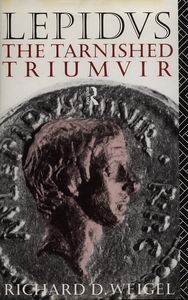 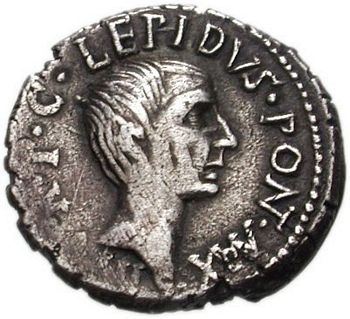 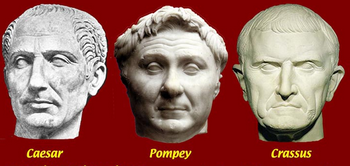 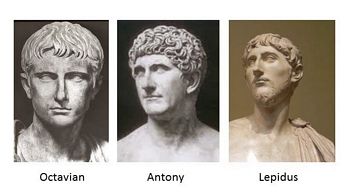 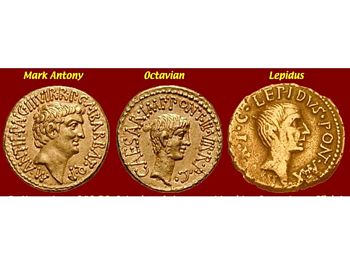 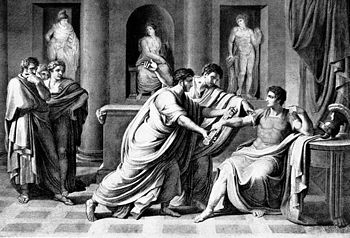 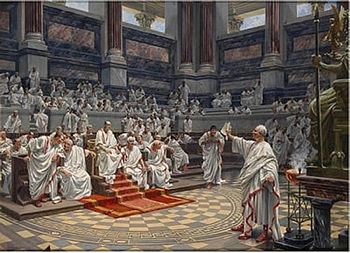 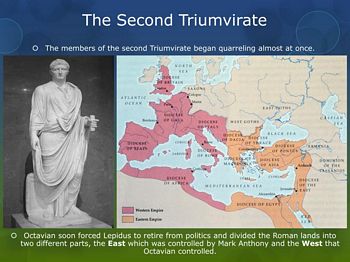 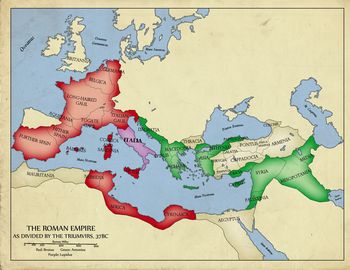 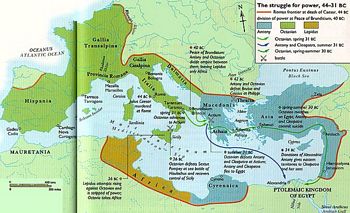 |
Copyright 2008 - 2026 G. Rudolf
